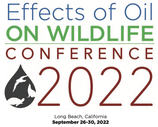Responder Management Abstracts
Watch Videos (Login required)
|
Assessment Team Training for Global Oiled Wildlife Response Jenny Schlieps Focus Wildlife Full Abstract
The GOWRS assessment service is a critical process used to understand the scope and scale of an incident and develop recommendations for possible response options. The assessment identifies key resources needed to mount a successful response and the incident-specific strategies and tactics to be deployed. Assessment team training ensures uniform baseline knowledge and parity among GOWRS partner organizations and is a key preparedness element for the GOWRS network. Over the past year, the training working group has focused on developing an assessment team training based on the specific knowledge and skill requirements for each of the four assessment team positions: Incident management/wildlife operations planning specialist; field and capture specialist; rehabilitation and facility specialist; and veterinary/incident-specific specialist. Learning objectives for five core assessment team trainings were developed and aligned with overall assessment team function within the GOWRS framework. A gap analysis was conducted to identify existing content that could support training development. The working group is targeting the next year for finalization of the core assessment team trainings. This presentation focuses on the development of the trainings and progress to date. |
Wellness Management Tools for Taking Care of Yourself and Your Team
Danene Birtell, Lauren DuBois, Julie Skoglund Oiled Wildlife Care Network, UC Davis, International Bird Rescue Full Abstract
Responding to oiled wildlife emergencies is both rewarding and challenging work. Sources of stress for responders may include witnessing animal suffering, life-and-death decisions for the animals, intense workloads/extended hours, and separation from home, family and friends. Stress management and overall wellness is critical for responders to continue to help and support the response and give the best possible care to our wild patients. Exposure to prolonged stress can lead to trauma and burnout. Rest, nutrition, and stress prevention and management are some critical steps that can be taken to ensure responder wellness. This presentation will provide some of the tools developed by the OWCN Planning Summit Working Group which was made up of members from across the Network that could be utilized before, during, and after a response to support the team in creating a more positive and supportive work life balance. |
It Takes a Village:
Being Prepared to Staff an Oiled Wildlife Response Mandy Fischer Tri-State Bird Rescue & Research, Inc. Full Abstract
Oil spill response involving wildlife requires staff with specialized training and continual exercises to remain prepared. Maintaining a team of well-trained oiled wildlife responders is often a significant challenge for any response organization. By collaborating with other types of animal care and environmental professionals, such as zoological organizations and Ramboll, Tri-State Bird Rescue & Research (TSBRR) has effectively expanded its responder roster and increased capabilities without the need to rely solely on volunteer support when actively responding. This is exceptionally important for spill responses at a greater distance from the TSBRR Delaware facility. In order to be prepared to respond, TSBRR paraprofessionals need to maintain rosters of available staff (by state), make sure these personnel are trained in the Incident Command System (ICS), and have the appropriate Hazardous Waste Operator and Emergency Response (HAZWOPER) training. TSBRR also includes its paraprofessionals in oiled wildlife rehabilitation training at its facility, spill drills, and frequent meetings in person and virtual communications. These collaborations can make all the difference in the quality of a spill response and the number of oiled wildlife that can be successfully captured, rehabilitated, and returned to their natural habitats. This presentation will cover strategies implemented between Tri-State Bird Rescue & Research and its paraprofessionals. |

